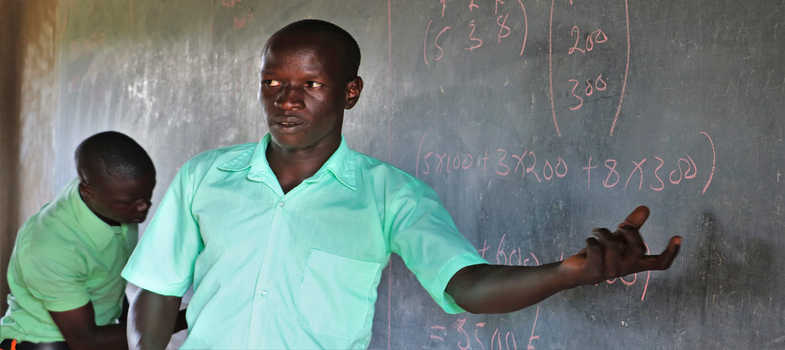Reinforcing learners
A reinforcer is an event that occurs after a behaviour, and due to the reinforcer the behaviour is likely to occur again in the future. Basically, if something is expected or enjoyed after engaging in a behaviour, one is likely to do the behaviour again.
By reinforcing the desired behavior with praise, the child will be more likely to perform the same actions again in the future. But positive reinforcement can also increase the probability of not only desirable behaviour but also undesirable behaviour. For example, if a learner screams to get attention and is successful in getting it, the attention serves as positive reinforcement, which increases the likelihood that the learner will continue to scream when looking for attention.

Types of reinforcers
Natural and direct reinforcers
This type of reinforcement results directly from the appropriate behaviour. For example, interacting appropriately with peers in group activities will lead to more invitations to join such activities. The natural reinforcement for appropriate bids for attention, help, participation, etc. is providing the attention, help and opportunity to participate. The goal should always be to move the learner to natural and intrinsic reinforcement.
Social reinforcers
These are reinforcers that are socially mediated by teachers, parents, other adults and peers which express approval and praise for appropriate behaviour. Comments (“Good job,” “I can tell you are working really hard,” “You’re nice”), written approval (“Super”), and expressions of approval (nodding your head, smiling, clapping, a pat on the back) are all very effective reinforcers.
Activity reinforcers
Activity reinforcers are very effective and positive for learners. Allowing learners to participate in preferred activities (such as games, computer time, etc.) is very powerful, especially if part of the reinforcement is being allowed to choose a classmate with whom to participate in the activity. This also provides social reinforcement from the partner.
Tangible reinforcers
This category includes edibles and other awards. Awards can be in the form of certificates, displaying work and letters home to parents commending the learners’s progress. These are powerfully motivating reinforcers.
